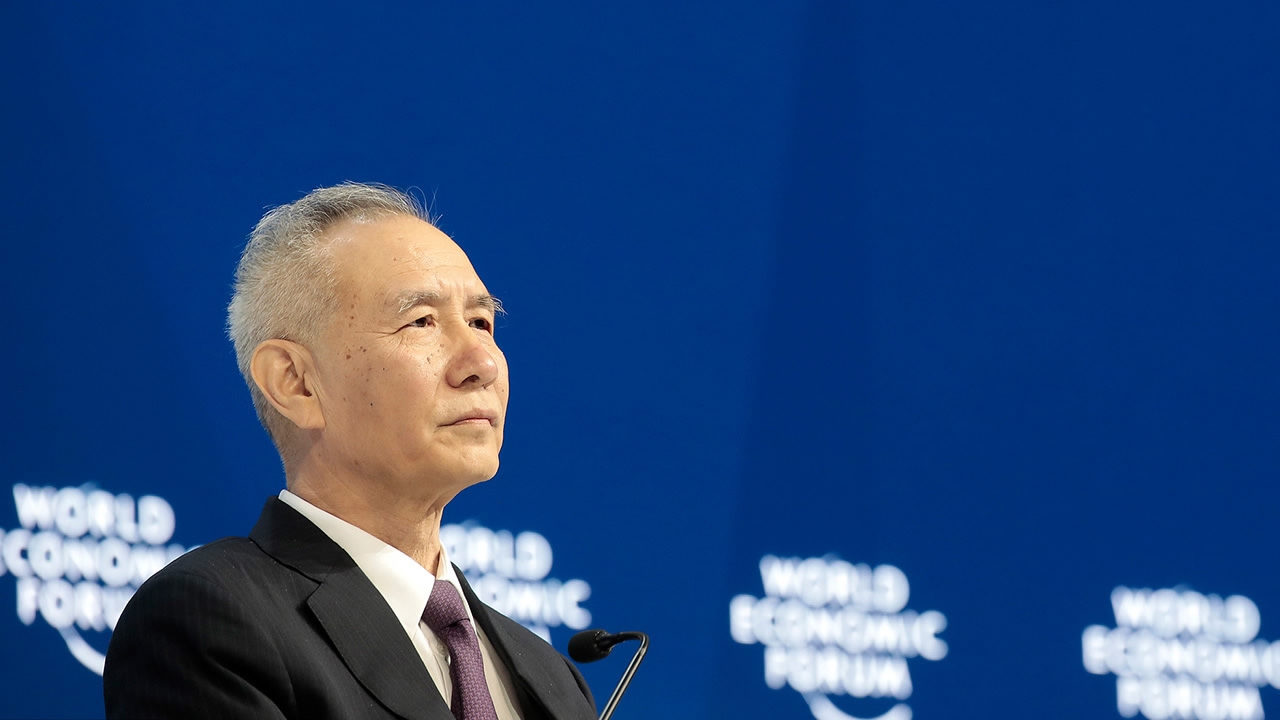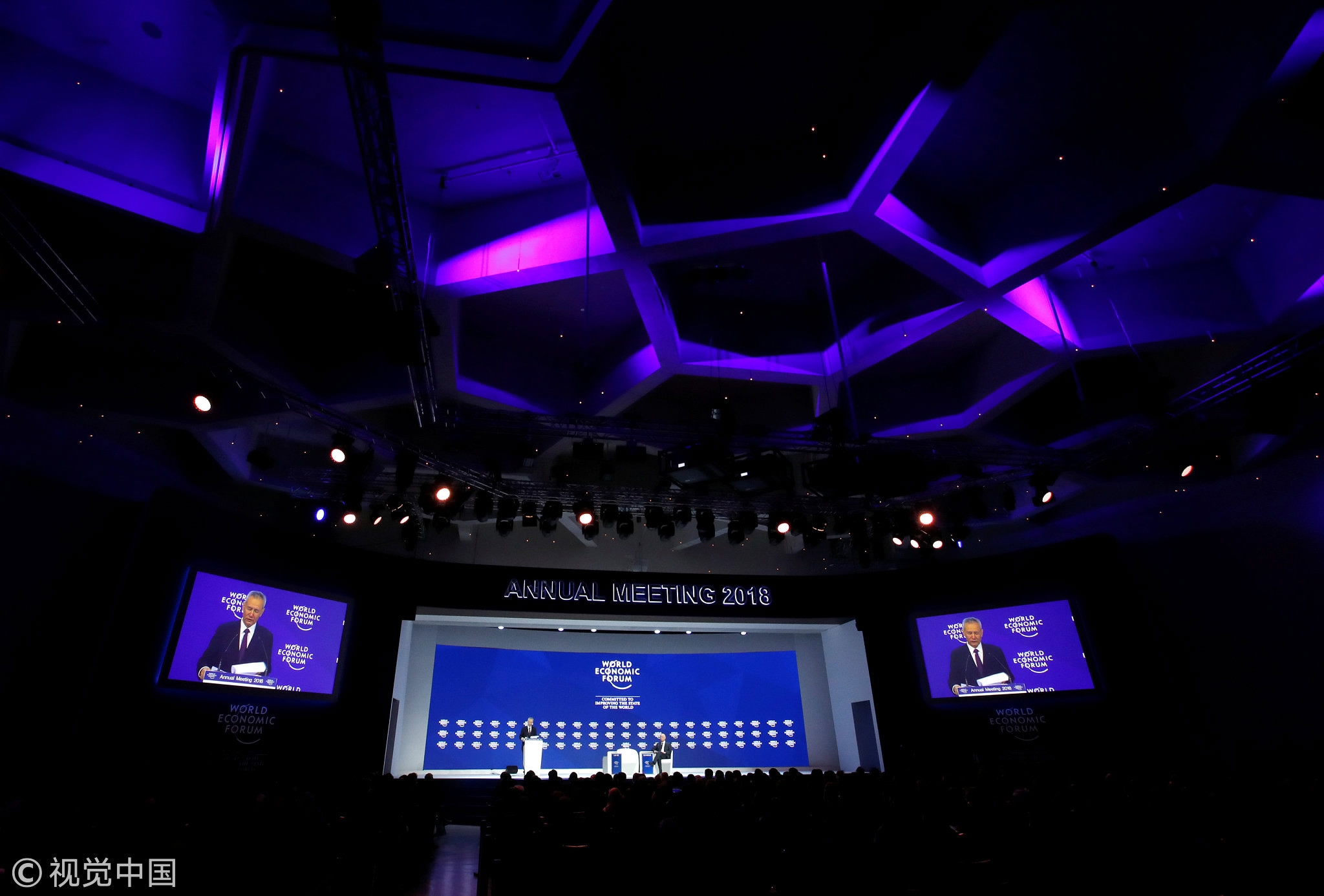
Business
22:55, 24-Jan-2018
Liu He shares his perspective on China's economic development
By Chen Xieyuan

Welcomed by Klaus Schwab, founder and executive chairman of the World Economic Forum (WEF), Liu He, a high-ranking Chinese official in economic affairs shared his perspective on China's future economic development.
“At such a stage of development, China needs to put more emphasis on structural improvement rather than quantity expansion.”
Liu says China's main tasks include preventing and resolving risks, conduct targeted poverty reduction and controlling pollution.

Liu He, a member of the Political Bureau of CPC Central Committee, speaks during the World Economic Forum (WEF) annual meeting in Davos, Switzerland, Jan. 24, 2018. /VCG Photo
Liu He, a member of the Political Bureau of CPC Central Committee, speaks during the World Economic Forum (WEF) annual meeting in Davos, Switzerland, Jan. 24, 2018. /VCG Photo
“Green and low carbon development is what the Chinese people and people across the world want the most.”
Liu says China will continue to advance reform and opening up, as well as encourage global competition.
“We will further integrate with international trade rules and ease market access. We’ll also substantially open up the service sector, the financial sector in particular, and create a more attractive investment environment.”
Last year in Davos, Chinese President Xi Jinping positioned himself as firmly in favor of globalization. And the same message was delivered this year.
“Over the past year, in line with the propositions of President Xi, China has stood firm against all forms of protectionism.”
In his remarks, Schwab says China’s future is intrinsically linked to the fate of the global economy, which is marked ever increasingly by protectionism and the looming threat of trade wars.
But China is willing to connect and cooperate with the world to solve global issues together.

SITEMAP
Copyright © 2018 CGTN. Beijing ICP prepared NO.16065310-3
Copyright © 2018 CGTN. Beijing ICP prepared NO.16065310-3